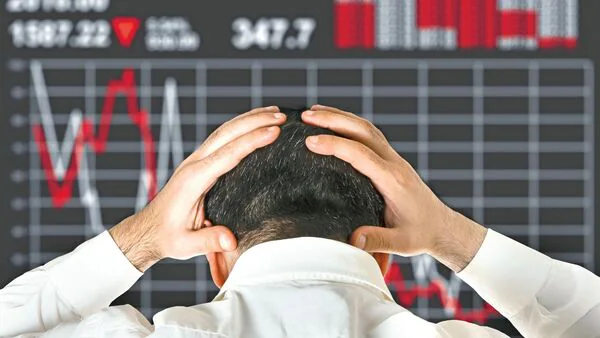Global stock markets experienced a deeper selloff yesterday as worries intensified that the Federal Reserve may be lagging in its support for a weakening US economy, prompting investors to flock to bonds for safety.
Japanese shares fell sharply as traders anticipated further domestic rate hikes. The Topix and Nikkei indexes neared bear market territory, with the Topix poised for its worst three-day decline since the 2011 Fukushima disaster. The yen surged over 2 percent against the dollar, and a regional stock index fell to its lowest point in more than four years, erasing 2024 gains. US index futures also declined.
Recent US data showed one of the weakest non-farm payroll reports since the pandemic, with the unemployment rate unexpectedly rising above the Fed’s year-end forecast, triggering a key recession indicator. This led to lower Treasury yields and widening spreads on investment-grade dollar bonds in Asia, the largest in 22 months.
Charu Chanana, head of currency strategy at Saxo Bank A/S, commented on the shift in market sentiment, noting, “The recent trends were largely based on expectations of a US soft landing. As doubts about this assumption grow, we may see further pullbacks in equities and in strategies involving low-yielding currencies.”
Japan’s 10-year bond yield fell to its lowest since April, dropping by 17 basis points to 0.785 percent. Mitsubishi UFJ Financial Group saw its largest intraday drop ever, as the fall in bond yields threatened to reduce loan margins.
Bond traders have struggled to predict interest rate movements accurately since the pandemic, with global bonds recovering their losses for the year as signs of US economic decline boosted demand for fixed-income assets.
Equity declines reflect concerns about the economic outlook, geopolitical risks, and the potential overhyping of artificial intelligence investments. Goldman Sachs increased the likelihood of a US recession in the next year to 25 percent from 15 percent, though it noted there are reasons to remain cautiously optimistic.
Additional pressure came from Berkshire Hathaway Inc. reducing its stake in Apple Inc. by nearly 50 percent as part of a significant second-quarter sell-off.
Asian currencies, led by Malaysia’s ringgit, strengthened, while the Mexican peso continued to decline as traders unwound emerging market carry trades. The rise in funding currencies, like the yen and yuan, has impacted the carry trade, which involves borrowing at low rates to invest in higher-yielding assets.
Oil prices fluctuated near a seven-month low, with broader financial market sell-offs offsetting rising tensions in the Middle East. Cryptocurrencies also suffered from global risk aversion.
With only three Fed meetings remaining, market expectations are shifting towards the possibility of a large half-point rate hike or a move between scheduled meetings to stimulate growth. However, such aggressive actions might signal an emergency, potentially increasing market anxiety, as Goldman Sachs raises recession probability forecasts.
Charlie Ripley from Allianz Investment Management stated, “This doesn’t mean the Fed will make hasty decisions, but it should prompt a more realistic evaluation of policy options at the next meeting.”
For comments, Feedback and Opinions do get in touch with our editor on WhatsApp: +44 7949 297606

For comments, Feedback and Opinions do get in touch with our editor on WhatsApp: +44 7949 297606.


